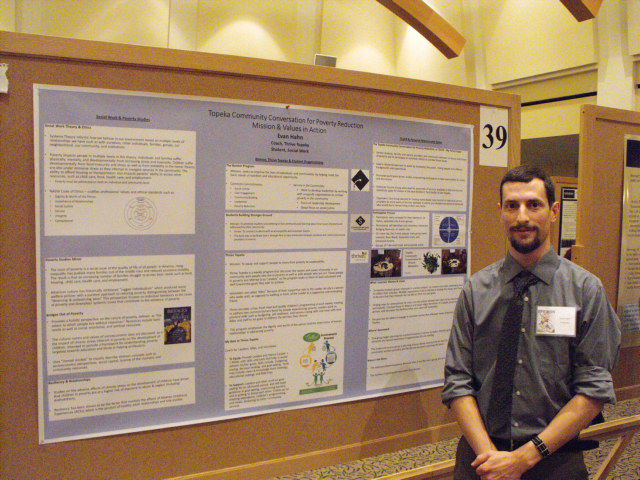Bridging the gap: The difference between the middle-class mindset and underserved populations
April 25, 2019
Junior Social Work major, Evan Hahn, used his APRON presentation to help others understand why some segments of society view those in poverty in certain ways. He argues that many social services are developed using a “middle class mindset” and aren’t as convenient as they could be for those who are considered low income or impoverished.
“There are multiple system in our lives that affect how we live,” said Hahn. “The smallest is the person, then there’s communities and then there are institutions. This is where you go to school or where you go to church… this can then be connected to the idea of how we view those in poverty.”
It all started with a book that was introduced to Hahn while in class called Bridges out of Poverty. Hahn argues that the book is written for a middle-class audience who are in the education system when the title is expanded to “strategies for professionals and communities.”
“When you think about it, teachers operate from a middle-class world and perspective, but a lot of the students are living in poverty,” said Hahn. “So what does that difference look like? That is what this book tries to do.”
It was these principles that Hahn brought to his non-profit placement, Thrive Topeka, through the LinC-Bonner Scholar program.
Thrive Topeka provides a weekly program for those in poverty, called “leaders,” and they are partnered with community resource managers and volunteers, called “allies.” These weekly discussions are coordinated to help those who are impoverished recognize the community resources available to them.
“They learn about the resources they need, different strategies to set goals and plan to achieve those resources and the ‘ally’ is the support system,” said Hahn. “The ‘leader’ picks the goals and makes the changes… the ‘leader’ sets the agenda.”
This setup has reversed the standard setup of middle-class individuals controlling the resources and programs available to impoverished communities. Instead, at Thrive Topeka, Hahn has helped to develop a program that places impoverished individuals in the driver’s seat.
“It’s important to work with those that come in with a different perspective than your own,” said Hahn. “This is when you begin to question why others are making changes that make absolutely no sense to you. That is because they’re coming in from a completely different angle.”
Hahn states that he’s learned many things about poverty when using this approach.
“When you’re living in poverty, relationships are important since you don’t have the financial means to take care of all your needs… this leads you to rely on other people,” said Hahn. “You’re willing to sacrifice your own paycheck to keep your relationships.”
This proposed model was started from a program called “Circles” who worked with the authors of Bridges out of Poverty. Hahn then took it upon himself to implement the same model and apply it to the issues he was seeing in Topeka.
“The model was already in place,” said Hahn. “I used my knowledge of the ‘systems theory’ and tailored it with my LinC-Bonner service site to help coordinate my event ‘Topeka Community Conversation on Poverty Reduction.’”
Hahn plans on getting a master’s degree in social work and will continue his work as the creator of Students Building Stronger Ground (SBSG) who hosted the Topeka Community Conversation on Poverty Reduction.
“The goal is to create a program that not only talks about these issues but takes the initiative to do something about them,” said Hahn.




